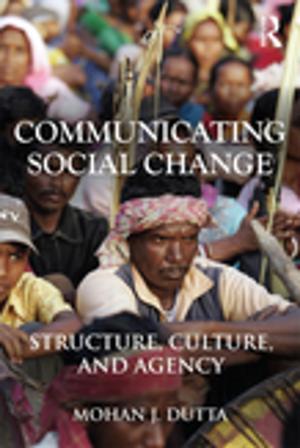Adoption in Japan
Comparing Policies for Children in Need
Nonfiction, Social & Cultural Studies, Political Science, Government, Social Policy, Social Science, Cultural Studies, Ethnic Studies| Author: | Peter Hayes, Toshie Habu | ISBN: | 9781134165513 |
| Publisher: | Taylor and Francis | Publication: | August 25, 2006 |
| Imprint: | Routledge | Language: | English |
| Author: | Peter Hayes, Toshie Habu |
| ISBN: | 9781134165513 |
| Publisher: | Taylor and Francis |
| Publication: | August 25, 2006 |
| Imprint: | Routledge |
| Language: | English |
The first book-length study of adoption in Japan, this impressive work tackles the innovative and sometimes controversial subject of the policies of adoption agencies in Japan. The book places special adoption in the context of a liberal reformist agenda that has challenged traditional concepts of the family through the efforts to place children with difficult family backgrounds, including mixed and minority ethnic backgrounds. Drawing on empirical source material gathered since the late 1980s, the authors consider the central policy issue of whether agencies should be given a free hand to create their own policies, or whether they should be more tightly regulated. Finally, the book analyzes how different agency strategies for finding homes for hard to place children are related to different assumptions about the psychology and reasoning of prospective parents.
Adoption in Japan makes a significant contribution to the academic literature in the fields of Japanese studies, public policy, social work and sociology. It will also be of interest to professionals involved in adoption agencies, specialist social work and adoption panels.
The first book-length study of adoption in Japan, this impressive work tackles the innovative and sometimes controversial subject of the policies of adoption agencies in Japan. The book places special adoption in the context of a liberal reformist agenda that has challenged traditional concepts of the family through the efforts to place children with difficult family backgrounds, including mixed and minority ethnic backgrounds. Drawing on empirical source material gathered since the late 1980s, the authors consider the central policy issue of whether agencies should be given a free hand to create their own policies, or whether they should be more tightly regulated. Finally, the book analyzes how different agency strategies for finding homes for hard to place children are related to different assumptions about the psychology and reasoning of prospective parents.
Adoption in Japan makes a significant contribution to the academic literature in the fields of Japanese studies, public policy, social work and sociology. It will also be of interest to professionals involved in adoption agencies, specialist social work and adoption panels.















